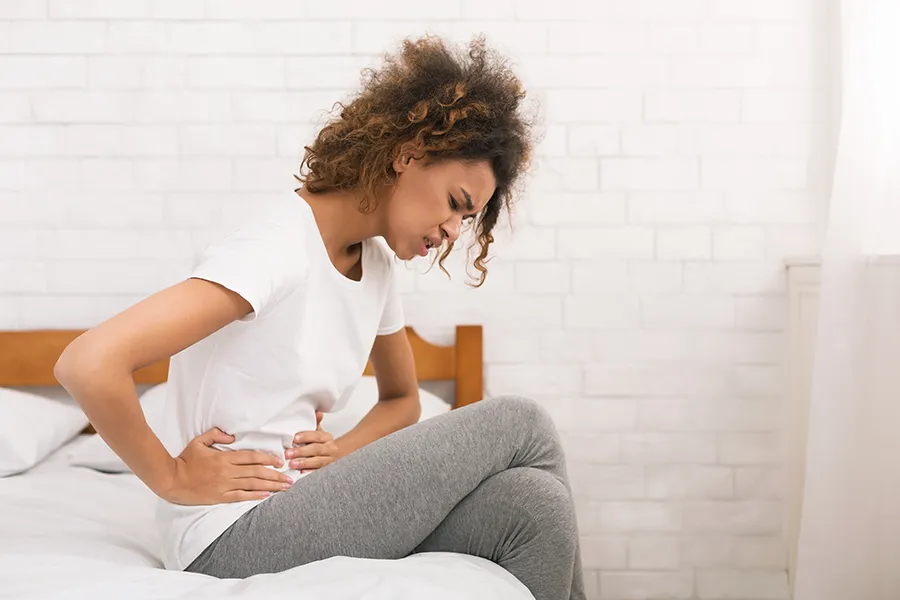Florham Park, New Jersey PCOS doctor, Natasha Fuksina, M.D. provides bioidentical hormone replacement therapy to fight polycystic ovarian syndrome–restoring balance and bringing natural relief to women in Morris County, New Jersey.
Florham Park, New Jersey bioidentical hormone doctor, Natasha Fuksina, M.D. of AstraMDhealth treats Morris County, New Jersey women suffering from polycystic ovarian syndrome (PCOS) using bioidentical hormone replacement therapy (BHRT) combined with functional medicine treatments that are customized to help restore balance and promote optimal health. Natasha Fuksina, M.D. understands the devastating effects that PCOS can have on a woman’s overall health and well-being and is committed to helping Morris County, New Jersey women overcome their symptoms and regain control of their lives.
Using natural bioidentical hormones and the latest functional medicine treatments, Morris County, New Jersey polycystic ovarian syndrome doctor, Natasha Fuksina, M.D. provides a beacon of hope for Florham Park, New Jersey women suffering from polycystic ovarian syndrome by helping them to achieve balance and optimal wellness.
Florham Park, New Jersey PCOS doctor, Natasha Fuksina, M.D. provides a comprehensive functional medicine approach to treating Morris County, New Jersey women suffering from polycystic ovarian syndrome. Call (862) 281-6587 today!
Symptoms of Polycystic Ovarian Syndrome
Polycystic ovarian syndrome can be difficult to diagnose however with proper diagnostic testing, bioidentical hormones and customized functional medicine treatments, Morris County, New Jersey women have been able to successfully balance hormones and gain relief from symptoms associated with polycystic ovarian syndrome. Florham Park, New Jersey PCOS doctor, Natasha Fuksina, M.D. provides a variety of comprehensive and compassionate functional medicine programs to help Florham Park, New Jersey women restore their hormonal balance.
Polycystic Ovarian Syndrome Explained
Influencing Factors
Polycystic Ovarian Syndrome is an ailment that causes numerous fluid-filled sacs, or cysts, to surround the ovaries, which causes numerous issues for women. This syndrome occurs when a woman’s hormones become imbalanced in any number of ways, which include:
The Production of too many Androgens (Male Hormones)
Androgens such as DHEA and testosterone are healthy in the correct amounts: they help maintain libido, muscle mass, and energy levels. However, an excessive amount of testosterone production can lead to PCOS and its various unwanted symptoms.
The Imbalance of Hormones: LH and FSH
Luteinizing Hormone (LH) and Follicle Stimulating Hormone (FSH) are hormones that play a role in ovulation and the menstrual period. When the ratio between LH and FSH becomes skewed–PCOS can occur.
High-Stress Levels
High-stress levels produce high amounts of cortisol, which is healthy in moderation, however too much can disrupt the functioning of prolactin–which is a hormone that naturally helps other hormones to stay in balance.
Benefits of Rebalancing Hormones
The benefits of rebalancing your hormones to combat the symptoms of Polycystic Ovarian Syndrome are vast. Many women have been able to overcome their symptoms and regain overall health and wellness by balancing hormones. Women have experienced:
Thicker Scalp Hair
One of the more difficult symptoms of PCOS for women to deal with is the loss of their scalp hair–this may be due to elevated levels of testosterone. While some testosterone in the female body is healthy, irregular amounts of testosterone can change existing testosterone into another form called dihydrotestosterone. This form of testosterone leads to the death of hair follicles and creates hair loss.
Balancing hormone levels with bioidentical hormone replacement therapy may help women prevent further hair loss and grow thicker, more lustrous hair.
Healthier Moods
Hormone imbalances can adversely affect moods. Women with imbalanced sex hormones–such as progesterone, estrogen, and testosterone–may have increased depression, anger, or anxiety. Higher levels of testosterone may lead to increased anger or depression. Meanwhile, lower levels of estrogen or progesterone can lead to: anxiety, nervousness, irritability, or depression. But providing equilibrium may relieve the pressures of these emotional ailments.
Clear Skin
Heightened amounts of male hormones can lead to more oil production in the sebaceous glands. Women with imbalanced hormones from PCOS may suffer from acne. While testosterone may promote oil production, estrogen helps women to have clearer and more lustrous skin so balancing these hormones can help women to have clearer skin and reduce acne.
Weight Loss
Despite all efforts to eat right and exercise, many women with PCOS suffer from obesity because of latent hormonal imbalances. PCOS is indicative of high levels of testosterone–which is an anabolic steroidal hormone. Women with higher amounts may tend to keep weight on. But balancing out testosterone to estrogen and progesterone levels can help shed the excess weight–leaving you feeling fitter and more confident.
Improved Fertility
The reproductive system is regulated by hormones, and in order for women to be fertile, the female sex hormones must all be in alignment. In women with PCOS, periods and ovulation are often irregular due to imbalances. Balancing hormones to promote regular menstrual and ovulation cycles will create equilibrium and provide a safe and stable environment for fertilization purposes–which can increase the chances of natural conception and healthy pregnancy.
Find Answers To Frequently Asked Questions About BHRT
Beginning a Bioidentical Hormone Replacement Therapy (BHRT) protocol typically comes with several questions. We’ve gathered some of the most common questions related to starting BHRT and answered them here below. If you have any further questions or need any clarification, please contact Dr. Fuksina at (862) 281-6587.
How Is BHRT Different From Regular HRT?
The main difference between bioidentical HRT and other forms of HRT is the kind of hormones that are used. In regular HRT, the synthetic hormones used contain additional chemical components that allow the drug manufacturers to patent their chemicals. At best, these added components do nothing for you. At worst, your body may recognize them as foreign chemicals and they may cause unpleasant side effects.
In BHRT, the hormones used are bioidentical, which means that they are the exact chemical structure as the hormones naturally produced in your body. This means there is no risk of your body not accepting them. Plus, they are derived from natural plant sources such as yams and soy.
Can I Buy Bioidentical Hormones Online?
While you may find websites claiming to sell bioidentical hormones, there are many risks involved in purchasing hormones online. First, it is often difficult to trace the origin of these products, meaning they may not be regulated for accuracy. This leads into the second problem, which is that it is very hard to be sure of the ingredients of these products. You may not be getting hormones at all!
Even if you find legitimate bioidentical hormones online, without seeing a doctor you can’t know for certain which hormones you need, what dose you need them in and what form of BHRT will work best for you. Here at Dr. Fuksina, you will receive proper care and treatment while experiencing minimal side effects.
What Form Does BHRT Come In?
Bioidentical hormones are prepared by a compounding pharmacy where they are produced into several forms including: pills, patches, subdermal pellets, creams, injections and more. Everyone responds to these various forms differently, and your BHRT doctor can help find the form that will most benefit you and your body.
What Is The Cost Of BHRT?
The cost of BHRT varies by the hormones needed, the doses needed, the form of BHRT, and the length of time that you receive treatment. For a more accurate quote, please call Dr. Fuksina at (862) 281-6587 to schedule a consultation.
Is BHRT Covered By My Insurance?
Because insurance plans and providers vary considerably, there is no way for us to provide a blanket statement. Your plan may cover BHRT under certain circumstances. The best course of action is to call Dr. Fuksina at (862) 281-6587 to discuss whether we accept your current insurance plan and provider. After you call us, we recommend contacting your insurance provider as a follow-up to ensure that your treatment is covered or to discuss how your treatment may be covered.
Are Bioidentical Hormones Safe?
When prescribed and supervised by a BHRT doctor, BHRT is generally safe. Any risks or side effects associated with your particular treatment will be reviewed thoroughly before you begin BHRT.
What Conditions Are Treated With BHRT?
Bioidentical Hormone Replacement Therapy is used to treat a number of conditions caused by hormone imbalance or that result in hormone imbalance. In some cases, BHRT is used to treat the underlying condition while in others it is used to treat the symptoms. You can find some common conditions that BHRT may be used to treat listed above.
What If My Question Is Not Listed Here?
Patients often have a great many questions before beginning BHRT. We will be happy to answer any questions that you may have before, during and after treatment. Contact Dr. Fuksina today with any further questions or to schedule your initial consultation.
Start Feeling Better With A Customized BHRT Plan Today!


